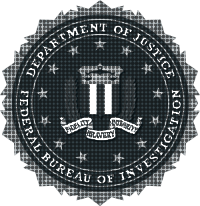Triads & Tongs
When we talk about Chinese(-American) organized crime, we often refer to Chinese criminal organizations as “tongs” or “triads”. Such as in various western crime dramas like Year of the Dragon (1985) or Oldboy (2013) and also Hong Kong gang flicks such as Infernal Affairs (2002), John Woo’s A Better Tomorrow (1986), Election (2005) and Johnny To’s Drug War (2012).
Contrary to popular belief, triads and tongs are distinct types of organizations. Tongs are benevolent organizations that played a central role in settling Chinese immigrants in the 19th century. “Triad” has become a catch-all term for criminal organizations native to China after the British collectively regarded all secret societies in Hong Kong as criminal elements and named them “triads”. But both are distinct from each other. Whereas tongs are benevolent organizations or secret societies established in the west, triads are secret societies (some more criminally active than others) established in China and – until the 1980’s – exclusive to China.
Tony Cheuk is an animator and filmmaker making Super Wok Explosion, a unique animated web-series about Chinese organized crime. On this website, you can find articles about Asian organized crime, Chinese tongs and triads. You can also learn about the universe of the series. If you have an interest in organized crime and would like to learn more about the project, click here!
Origin of the "triads"
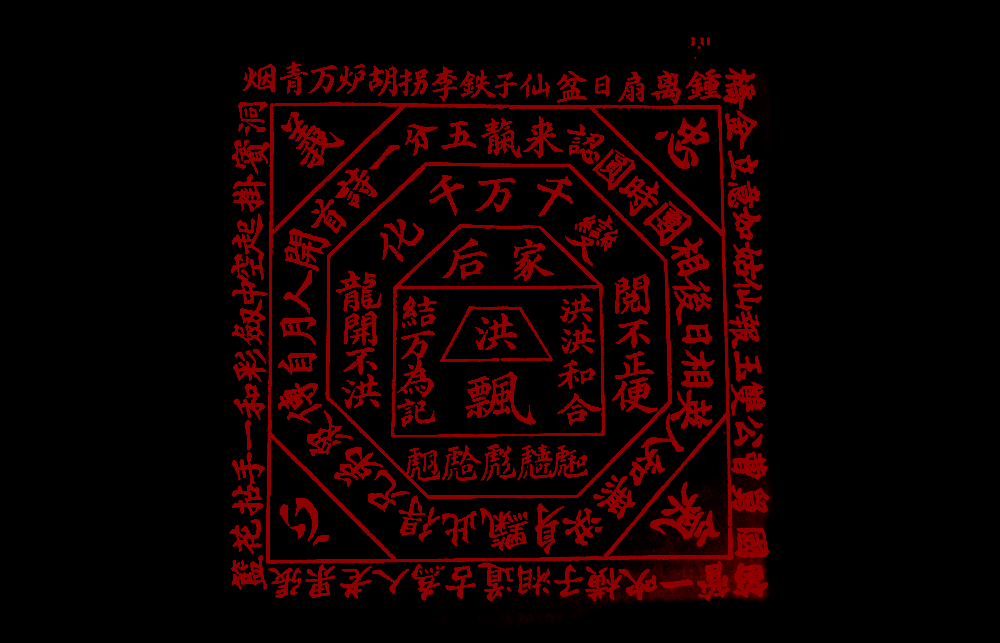 The Hongmen were an underground Anti-Manchurian rebellion with its roots in medieval China who believed that their founders—five monks from Shaolin Temple that escaped political persecution—were assigned a holy mission to topple the Qing dynasty.
The Hongmen were an underground Anti-Manchurian rebellion with its roots in medieval China who believed that their founders—five monks from Shaolin Temple that escaped political persecution—were assigned a holy mission to topple the Qing dynasty.
The word “triad” actually comes from the “Three Harmonies Society” or “Heaven and Earth Society” also referred to as “Hongmen”. They are better known as the Tiandihui. The Tiandihui are a Chinese fraternal organization with its roots lying with the White Lotus Sect founded in the 13th century.
The White Lotus Sect is a religious organization that became illegal under Manchu rule, a dynasty of Mongol rulers which ruled China from the 17th century to the fall of the Qing-dynasty in 1911. They strongly followed a doctrine of millennialism and messianism, believing that at the turn of the millennium all Han Chinese would become one family and awaited the advent of the new Buddha. Because the White Lotus was banned, they slowly turned into an underground national rebellion.
In Hongmen myth, it is said that the “Three Harmonies Society” was founded after the establishment of the Qing dynasty as a secret society fighting against the Qing rulers. It is said that the organization was founded by elements of Qing resistance and five surviving monks of the Shaolin Monastery – a myth in which government proponents burned down the anti-Manchurian Shaolin Monastery and five surviving monks were said to receive a vision commanding them to overthrow the Qing dynasty and the coming of a new Ming Emperor.
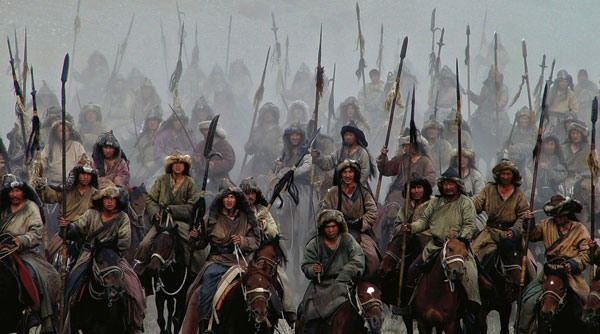 The Manchu were a people of steppe nomads of Jurchen descent that conquered Beijing. Nurhaci united the Jurchen tribes in the 16th century under four banners—a white, red, blue and yellow—and went on to succesfully besiege the Ming empire.
The Manchu were a people of steppe nomads of Jurchen descent that conquered Beijing. Nurhaci united the Jurchen tribes in the 16th century under four banners—a white, red, blue and yellow—and went on to succesfully besiege the Ming empire.
The Manchurian Qing dynasty
The Tiandihui are a fringe group of the White Lotus Sect, of which the modern-day rendition is secular. Under Manchu rule in the 19th century they advocated for the reestablishment of Ming China (the ruling dynasty preceding the Manchu-invasion in the 17th century) and overthrowing the Qing-dynasty. The modern Tiandihui successfully overthrow the Qing dynasty in 1911 to form the Chinese Republic under leadership of Sun Yat-Sen. This was until the Communist Revolution. Now, many soldiers in the Chinese Republic’s military residing in exile in Taiwan are believed to be related to the Tiandihui.
Under Qing-rule, all secret societies were regarded as illegal. In the 20th century, the Chinese Communisty Party started a witch-hunt against secret societies, forcing many to become recluses in the British colonies: Macau and predominantly Hong Kong. Under British rule, all secret societies were also considered illegal. They called them “triads” after the “Three Harmonies Society”, although the Three Harmonies Society differed in origin from other groups. In a way this label isn’t linguistically correct, but it was politically useful to create a catch-all term for all secret societies considered illegal.
Becoming criminal organizations
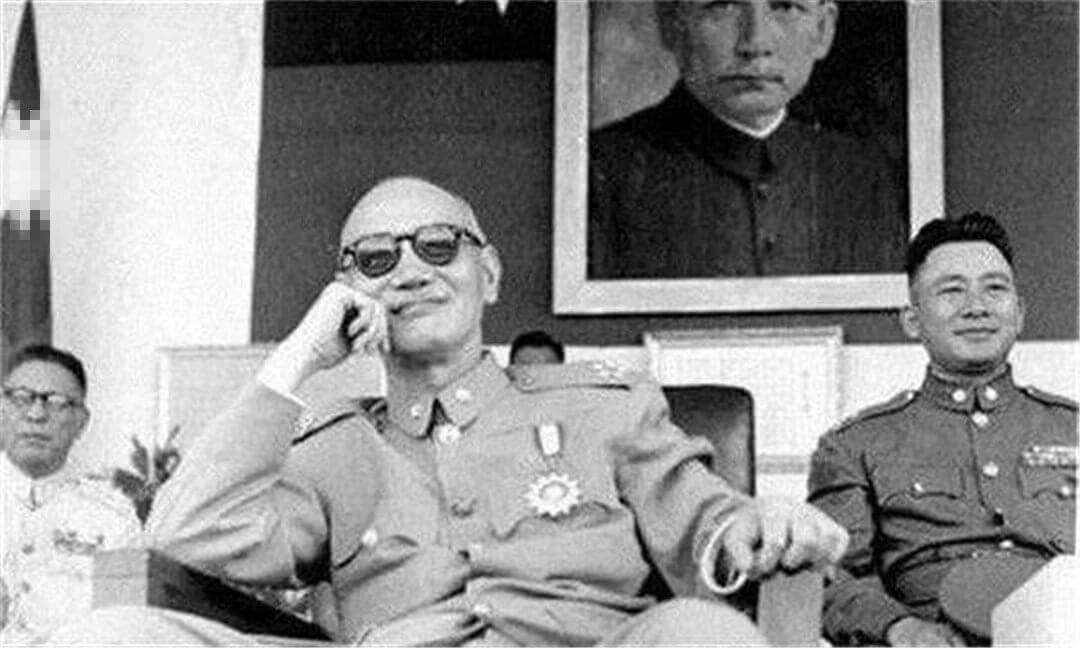 Chiang Kai-shek was a prominent military commander and political figure that went on to lead the Republic of China in the 20th century following Sun Yat-sen's revolution. He was a senior member of the Tiandihui. The Tiandihui have strong links to the Chinese Nationalist Party in Taiwan.
Chiang Kai-shek was a prominent military commander and political figure that went on to lead the Republic of China in the 20th century following Sun Yat-sen's revolution. He was a senior member of the Tiandihui. The Tiandihui have strong links to the Chinese Nationalist Party in Taiwan.
After the fall of the Qing dynasty in 1911, many of these triads lost a raison d'être. They lost the sympathetic donations of supporters, and thus their financial support. Because of the organizations’ underground nature, it was hard for members to return to everyday life. They therefore naturally aspired to other sources of income.
Triads or “black societies” continued to exist as fraternal organizations believed to have several hundreds of thousands of members. Although Ko-Lin Chin – one of the most important researchers studying Asian crime groups – denotes that only a portion of its official memberbase is “criminally active”.
Examples of present-day triad organizations are the 14K Triad, Wo Shing Wo, the Wo Hop To and Shui Fong. Different organizations exist with each having very different structures and rituals. Some structures are still based off of the former religious sects and they even retain varying, intricate initiation ceremonies where members swear oaths, use incense and symbolically slaughter animals. In some triads members still swear fealty to a Ming emperor.
What each of these triads have in common is that they more or less function as brotherhoods: once you are initiated into the scene, one swears to support and defend each other as blood brothers. Triads, while quite decentralized, have very complex structures with people responsible for accounting and money laundering as well as enforcers, ceremony masters and soldiers. They are prevalent in southern China and have strong influences in certain sectors.
What makes Triads distinct from Western criminal organizations
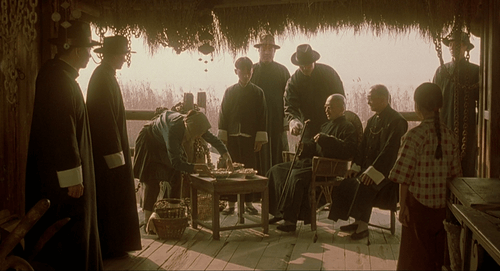 Chinese triads are unique criminal organizations that still rely heavily on tradition, rituals and ceremonies. Their organization largely remain a mystery, and each criminal group's rites are distinct from each other.
Chinese triads are unique criminal organizations that still rely heavily on tradition, rituals and ceremonies. Their organization largely remain a mystery, and each criminal group's rites are distinct from each other.
Triads are distinct from western criminal organizations such as the Campanian Camorra, the Calabrian 'ndrangheta or Italian American crime families in the way they organize their members. Chinese have a very collective and paternal culture – a chain of families, unions and associations that interlink into one organization with multiple fraternities that have different stakes, resulting in self-autonomous transcontinental cells that seamlessly work together and making them exceptionally hard to investigate and understand.
This collective culture is also where it becomes interesting for members with no criminal intent: during the 1980’s, triad membership peaked. Hong Kong suffered a high unemployment rate but triad membership offered opportunities: to open a business and to provide the resources to make it a success but also to simply find employment to make an income. They rose out above local police, even collaborating with them. Cops were so badly paid by the government they were on triad pay-rolls.
Modernization of mainland Chinese criminal groups
 Larger triads consist of different factions that 'politically' rival one another. In Super Wok Explosion, Chinatown gangster 'Rainman' is an enforcer for Water Room Gang, but an internal power struggle put a price on his head too.
Larger triads consist of different factions that 'politically' rival one another. In Super Wok Explosion, Chinatown gangster 'Rainman' is an enforcer for Water Room Gang, but an internal power struggle put a price on his head too.
But present-day, triads have modernized, profiting of China’s rapid modernization and warp into the Information era, becoming the largest and most diverse criminal organization in the entire world with two epicentres in Hong Kong and Macau. They are exceptionally good at white collar crime, having a strong hand in the Macau casino industry which monopolizes the largest money laundering node in global finance. An estimated 90% of all underground money is laundered in Macau. And besides being a transcontinental criminal organization, the triads have also become exceptionally good at digital crime and information warfare, proficient at hacking government facilities, financial institutions and corporate espionage.
Tongs
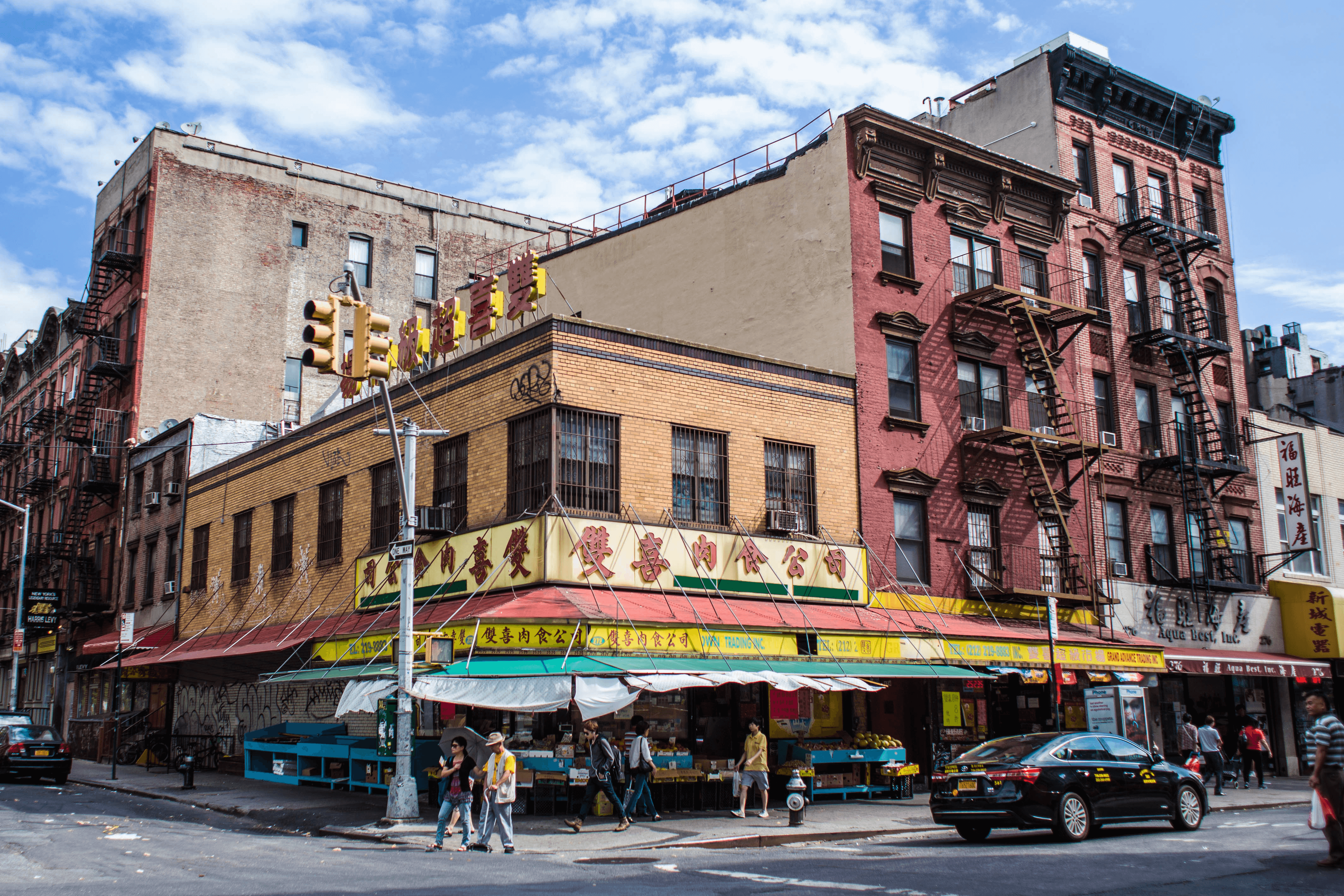 Every country with a significant Chinese community has a Chinatown. And every Chinatown surely has a tong.
Every country with a significant Chinese community has a Chinatown. And every Chinatown surely has a tong.
While tongs are often depicted as Chinese criminal organizations based in the west (primarily the United States), they are actually not all inherently criminal organizations. “Tong” is a catch-all term claimed by Chinese benevolent organizations, but it is also a term used to talk about secret societies associated with street gangs ravaging the streets of Chinatown towards the end of the 19th century.
Some tongs are completely legal (often non-profit) organizations registered at the Chamber of Commerce, with real headquarters in for example San Francisco Chinatown. They even have headquarters with their names plastered on the facade. Tongs are originally Chinese secret societies that have the intent of assisting local Chinese with anything ranging from employment to language classes and entertainment and they played an important role in the migration of Chinese to the United States.
Criminal tongs
 Historically, tongs have been quite violent. Both during the Tong Wars at the birth of the 20th century, but the '70s and '80s have been the golden age of tong street gangs.
Historically, tongs have been quite violent. Both during the Tong Wars at the birth of the 20th century, but the '70s and '80s have been the golden age of tong street gangs.
Most violent tongs disappeared after the period known as the Tong Wars, taking place during the transition into the 20th century. And more often than not, the term – when ascribed to a violent group – simply refers to groups of thugs known as boo how doy that carried out the tong’s dirty work during the period preceding and during the Tong Wars. An example being the Hop Sing Boys in the case of the Hop Sing Tong. Few tongs exist nowadays, with many gone defunct when the Tong Wars ended in the 1920’s. But some tongs such as the Hop Sing Tong, Suey Sing Tong and On Leong Tong continue to exist today. While tongs are officially regarded as legal organizations, some have been dubiously associated with criminal elements such as is the case with the On Leong Tong in New York.
While tongs aren’t exclusive to the United States, and chapters can also be found in the United Kingdom, The Netherlands and various German cities. Tongs have best come to be known by their depictions in American pop-culture. Tongs have been featured in various video games such as the Grand Theft Auto franchise and some Hollywood films such as in crime dramas like Year of the Dragon (1985) or Oldboy (2013).
Origin of Chinese tongs
 Portsmouth Square—also known as the 'Living Room' is a park in San Francisco Chinatown where the elderly gather each day to play cardgames and Mahjong to this day.
Portsmouth Square—also known as the 'Living Room' is a park in San Francisco Chinatown where the elderly gather each day to play cardgames and Mahjong to this day.
In the 1850’s, many Chinese workers migrated to the United States to help construct the Transcontinental Railroad – a project in which a railway connection between the West Coast and the East Coast of the United States was built. The Chinese workers replaced the originally predominantly Irish workforce because of on-going violence in the workers’ camps and bad work ethic.
The strong influx of Chinese workers who had the intent of sending money back to their families in China resulted in a disproportionate amount of young Chinese men living in California. It was believed that 25% of the entire working population of California was Chinese in the 1870’s. The disproportionate balance of men and women created a fruitful cradle for secret societies known as tongs to profit off of prostitution, gambling and human trafficking. The tongs migrated Chinese brides and girls to the United States to work as prostitutes and to be wed to young Chinese men in the United States. There was also a problem with outright slavery, with some tongs specializing in slave-girls to work at laundry and garment factories.
By the late 19th century, there is believed to have been hundreds of tongs in the Chinese ghettos and Chinatowns alone. Tongs would form and when there was a disagreement they would shed themselves of some of their members, resulting in tongs splintering and in some cases members being parts of multiple tongs at a time.
The political context of tongs
 The Golden Venture Incident was a catastrophic event that put Chinese people smuggling on the map indefinitely. At 2 AM in the morning, a ship that smuggled 286 illegal aliens ran aground in New York City. Ten people drowned.
The Golden Venture Incident was a catastrophic event that put Chinese people smuggling on the map indefinitely. At 2 AM in the morning, a ship that smuggled 286 illegal aliens ran aground in New York City. Ten people drowned.
At a superficial level many of the tongs were benevolent secret societies which were often a way for Chinese migrants to find employment and a place to sleep. Facing harsh racism in the 1870’s, many legislations were passed by Congress that limited job opportunities for Chinese migrants, so tong membership became favorable because it gave access to a network of associates offering employment or the ability to start an overseas business.
But at the same time, tongs were semi-political and nationalistic. This political allegiance is actually what tongs have in common with mainland triads. They are, just like triads, secret brotherhoods where upon initiation members would swear fealty to a forthcoming Ming emperor, something the tongs adopted from mainland Chinese Anti-Manchurian fringe groups of Han Chinese opposing the ruling Qing dynasty which ruled China until the Chinese revolution in 1911.
Anti-Manchurianism
The first tong in the United States, the Chee Kong Tong, is often used synonymous with the Hongmen. While the Chee Kong Tong is purely secular, unlike the religious White Lotus Sect the Hongmen or “Three Harmonies Society” split off from (from which the word “triad” derived). The Chee Kong Tong inspired the famous Chinese leader Sun Yat-Sen during his stay in the United States with the Anti-Manchurian ideology that eventually lead him to overthrow the Qing government in the 1911 revolution – forming the Chinese republic. The Chee Kong Tong was also one of Sun Yat-Sen’s strong proponents, often associated with the Tiandihui supporting the modern-day Chinese Republic based in exile in Taiwan.
Brotherhoods
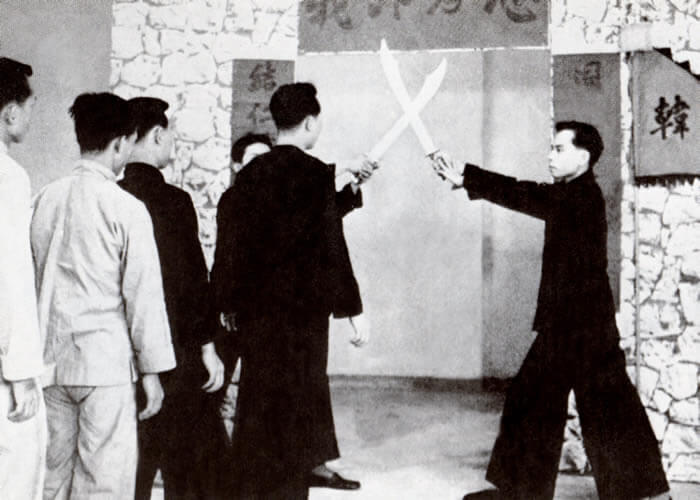 Triads and tongs have intricate initiation ceremonies. Sometimes triads base their rites off that of the Hongmen, where new entrants must pledge allegiance to the Ming and pass the 'Hung gate', depicted by two ceremonial swords forming a gate.
Triads and tongs have intricate initiation ceremonies. Sometimes triads base their rites off that of the Hongmen, where new entrants must pledge allegiance to the Ming and pass the 'Hung gate', depicted by two ceremonial swords forming a gate.
Brothers are expected to support and protect each other, and the tong’s benevolent activities were funded by shady activities such as running brothels, gambling dens and the opium trade in the United States. When the amount of tongs grew, the Chinese ghettos became saturated with tongs. They competed over territorial control and who shopkeepers would pay “pai peng” (tong tribute) to. Much of tong financial resources come from protection money gambling dens, brothels and opium dens. Tongs competed over what shops they would protect. Because of the disproportionate amount of young Chinese men, the tongs would also compete over brides and slave-girls.
While at a superficial level benevolent organizations, tongs would go on to hire street thugs to do the “dirty work”: often rebellious youngsters who would form into street gangs to fight Anti-Asian delinquents. Such as was the case with the Bing Kong Boys and the Bing Kong Tong. But later, they would work for the tongs to extort shopkeepers and vandalise gambling dens and brothels that refused to pay “pai peng”. However, many of these business owners had to pay pai peng to different tongs at the same time, rendering them bankrupt.
The tongs' golden age and their demise
 The Golden Dragon Massacre was a gang shootout in the Golden Dragon restaurant in San Francisco Chinatown where members of the Joe Boys made an attempt on the lives of Wah Ching leaders. Five died and eleven were injured—of which none were gang members.
The Golden Dragon Massacre was a gang shootout in the Golden Dragon restaurant in San Francisco Chinatown where members of the Joe Boys made an attempt on the lives of Wah Ching leaders. Five died and eleven were injured—of which none were gang members.
In the final years of the 19th century a full-scale gang war ensued between all of the tongs after the collapse of the Six Companies – a vocal organization working to quell the criminal elements in society for fifty years with some success. Although, after all these years the built-up pressure caused a volcanic eruption of violence and chaos in the streets of Chinatown, which was ultimately ended in the 1910’s by the San Francisco earthquake that turned much of Chinatown into rubble.
In 1921, the San Francisco police forced the remaining tongs to make peace, such as the Hop Sing Tong, Suey Sing Tong and On Leong Tong. These tongs continue to exist. Present day, many of these tongs actually claim to preserve Chinese American culture and tradition in the United States and still provide aid to Chinese migrants moving to the United States. Some of these tongs, like the Hop Sing Tong, have actual headquarters in San Francisco Chinatown with their name visibly on the facade in golden letters. Officially, these tongs aren’t criminally active. Although the On Leong Tong in New York Chinatown have reportedly been connected to the Ghost Shadows gang. Other tong elements have also been connected to Wah Ching gangs in Los Angeles and methamphetamine or “crystal meth” production in California.
Super Wok Explosion is a unique animated web-series about Chinese organized crime. The project is funded entirely by its audience. On this website, animator Tony Cheuk likes to share information about Asian organized crime—and world-building of the universe of the series, Chinese tongs and triads. If you're interested in learning more about the project, you can click here.
